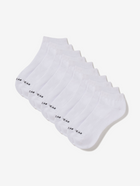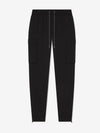-
 5'7'' Size S
5'7'' Size S
-
 5'11'' Size M
5'11'' Size M
Allwear Organic Hybrid Cardigan
Allwear Organic Hybrid Cardigan
 or
or  ⓘ
ⓘ
Non-Toxic & Sustainably Sourced
Certified by OEKO-TEX and Global Organic Textile Standard
Fits like: M/S W/M
Fits like: M/M W/L
Fits like: M/L W/XL
Fits like: M/XL W/XXL
Fits like: M/XXL W/XXXL
Couldn't load pickup availability







The Allwear Organic Hybrid Cardigan is designed for comfort and functionality, crafted sustainably with our non-toxic GOTS and OEKO-TEX certified organic cotton fleece blend. With its lightweight, hooded design, no-gather sleeves, and zipper side pockets, it’s perfect for layering on the go. Plus, the back air vent adds extra breathability, keeping you comfortable and ready for whatever the day brings.

Build A Healthy Wardrobe
- Sustainably crafted with non-toxic, premium natural materials
- Comfortable, functional, and easy-to-style for any activity, all year round
- Designed for all, made for you in sizes XXS-7XL
Other Brands
- Made with toxic chemicals and materials
- Poor breathability and versatility
- Overproduction and limited size range
Additives such as phthalates and bisphenol A (BPA) used in polyester manufacturing are recognized as endocrine disruptors, posing risks to reproductive and developmental health. Hahladakis et al. (2018): Journal of Hazardous Materials
Polyester contains carcinogenic antimony, which is used as a catalyst in its production. Antimony residues can migrate to the skin and be absorbed, especially when the fabric is heated, such as during exercise. Oecotextiles (2018): Oecotextiles Blog
Per- and polyfluoroalkyl substances (PFAS), commonly called 'forever chemicals,' are widely used in synthetic textiles like polyester and nylon. PFAS have been linked to various adverse health effects, including increased cholesterol, metabolic disorders, and immune deficits. Muñoz, Maria A., and Lein, Pamela J. "Toxic textiles: Potential health risks associated with toxic chemicals in clothing." Open Access Government, January 23, 2024.
Over 700,000 microplastic fibers can be released in a single wash from synthetic fabrics such as polyester and nylon. Napper and Thompson (2016): Marine Pollution Bulletin

























